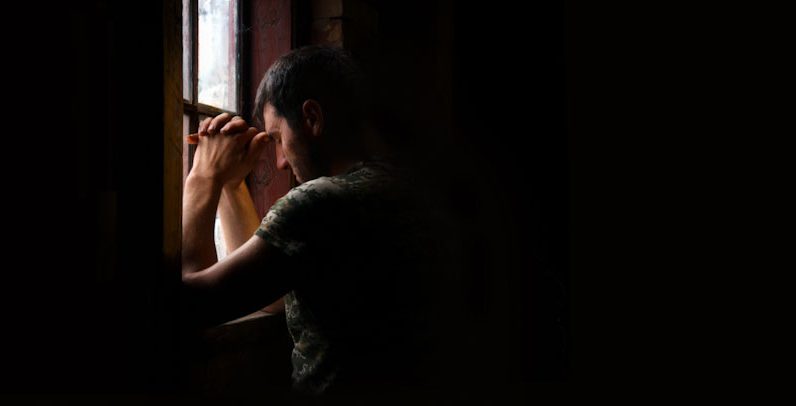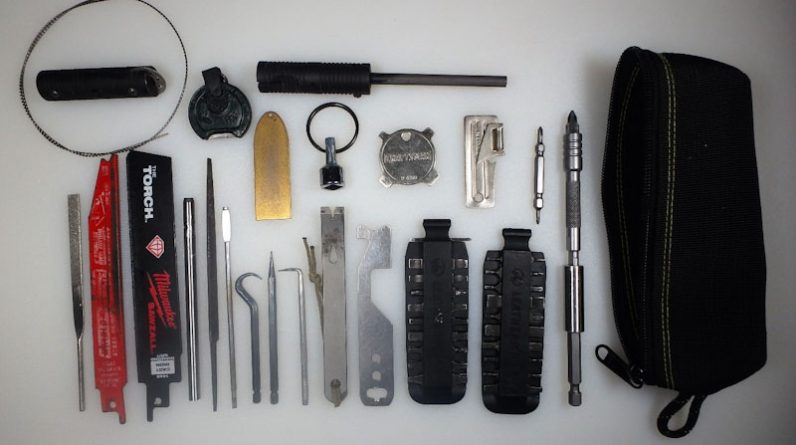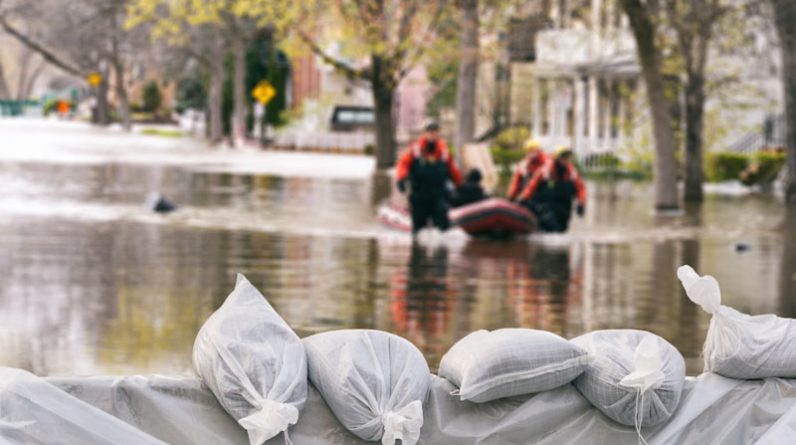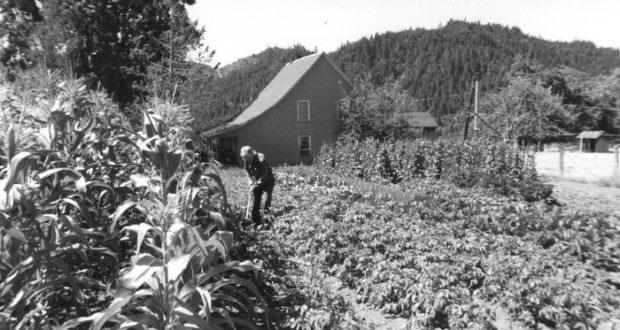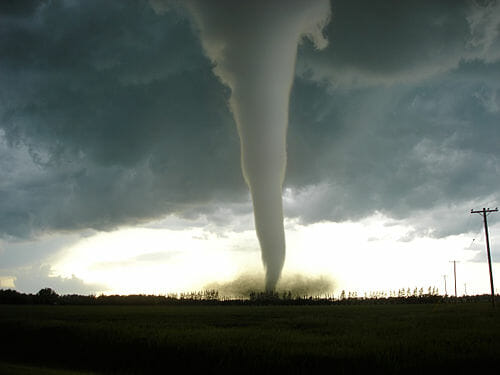This subject has been pondered by many thinkers, survivalists, and writers of post-apocalyptic fiction and the subject of the book The Knowledge: How to Rebuild the World from Scratch by Lewis Dartnell, scientist, writer, and UK Space Agency research fellow at the University of Leicester. (Dartnell, 2014)
Imagine that an event thrusts humanity back into the hunter-gather era. Without electricity, computers, fossil fuels, fossil fuel fertilizers, plastics, modern transportation, banking, manufacturing, government, industrial farming, modern medicine, modern infrastructure, water treatment plants, sewer systems, trash pickup and so on.
Existing stockpiles of medicine would soon run out. Water infrastructure would stop flowing or would become contaminated. Sewers would back up. Trash would pile up. Disease would become rampant. Animals and crops would die off. Existing fuel store would get used up. Mankind would experience a huge die off.
But perhaps worst of all, what if we also lost the knowledge necessary to rebuild? What if paper books had fallen into disuse and the remaining examples were lost to fire, rot, or the ravages of time?
What would it take for humanity to rebuild? This is the subject of Dr. Dartnell’s book. He outlines the key advances that would be necessary to relearn hunting and gathering, to progress from hunting and gathering to agriculture, to make food and clothing, produce substances, materials and medicine, power and transport, communication, advanced chemistry, master time and place and finally master the scientific method.
He points out that no one person has the breadth of knowledge necessary to keep the modern world functioning and therefore a “reboot manual” would be needed. But even if such a book existed today, it wouldn’t be understandable by a society that was just getting started. Understanding it requires specialized training. It would also have to be recorded on a medium durable enough to survive centuries or millennia and that most specialized data only exists on web servers. Most of it isn’t even in print, however a project or two has attempted preserve some of the world’s knowledge.
The Memory of Mankind project was initiated around the same Dartnell was writing his book on this subject and saves information on ceramic tablets stored in the Hallstatt Salt Mine in Austria. However, it’s purpose is only to preserve a snapshot of the world as it is today, thus it is more of a time capsule than a hedge against global catastrophe. In fact, the project’s creator, Martin Kunze, made a point of stating that it is not a “doomsday project”. Like Dartnell, he wanted to be sure to distance himself from those crazy survivalists! (Gray, 2016)
There may not be an equivalent of the Svalbard Global See Vault for the knowledge of mankind, but many organizations have records squirreled away in mines and vaults drilled into granite mountains. Unfortunately, each of them only saves information that important to them, not to build the world after a doomsday.
When we consider how our history books are basically long lists of events that that mankind failed to predict that harmed us, how man has engineered fragility right into every system we need to live, concentrating our population in cities dependent on electricity and microelectronics vulnerable to EMP, and food and fuel shipped in from other continents, it is a wonder that we haven’t created redundant hardened repositories of the knowledge we would need to rebuild the modern world. We must have more DNA in common with lemmings than we think.
While it’s not much of a reboot manual for society, Dartnell’s book is an interesting read for anyone with a love of science. I don’t think that possible to write a reboot manual for the world in a few hundred pages, (although Mathew Stein took a poke at it in When Technology Fails.) (Stein, 2000) Dartnell’s book is more of a tour of the major breakthroughs necessary to make the information age possible and that is useful and entertaining enough to make it well worth reading… at least in my opinion.
What this Means for Survivalists
So, according to Dartnell, but tempered by a survivalist, how do we rebuild the world from scratch? The following is a list of many of the key breakthroughs that would be needed to rebuild your community. It should be noted that survivors would need the cooperation of communities and trade to get it done. Rebuilding civilization from scratch isn’t something one could do on a single homestead, but understanding the technologies that would be needed enables survivalists to learn, develop the skills, and stockpile tools and materials necessary to provide valuable goods and services during such as apocalypse.
True economic security doesn’t come from money or even hard goods that can be stolen or burn, but from the ability to generate valuable goods and services, and understanding how to rebuild the world from scratch can give you just that. Why do think billionaires are buying up farmland?
The Grace Period?
Depending on how the world ends, Dartnell points out that there may be a lot of useful stuff left over for a while… shelter, food, water, fuel, medicine, raw materials, and so on and refers to a “grace period” while we use it up.
The trouble is that the grace period could only be hours, days or simply nonexistent. “The End of the World as We Know It” would mean that the electrical grid goes down long-term. If that happens, there will be a huge die-off. Darnell eventually concludes that, any way you look at it, the low-hanging fruit of leftover resources, if it is not consumed in the disaster, will immediately begin rotting.
Dr Peter Pry points out in his writings on EMP that, without functioning infrastructure, people will die “the old-fashioned way” … from starvation and disease. Any event that takes down the grid will also take down water treatment plants, which will result an epidemic of waterborne illness within whatever larger disaster took out the grid. And all those resources concentrated in the cities, survivors will have to move dead bodies to get at them.
Therefore, survivors must leave the cities. For survivors to cannibalize the leftovers at scale, they may be forced to come back years later, after the risk of disease has passed.
Agriculture
Darnell skips over the hunter-gather lifestyle that kept our ancestors alive for tens of thousands of years and starts with agriculture. Once the population gets too large for the land to sustain, agriculture becomes necessary. It also enables additional synergy. Since one family can feed ten, some grow the food, others raise livestock, some other fishes, another makes the clothing, yet another heal the sick, one more builds the shelter, and so on, and the whole is greater than the sum of its parts.
The primary advances in agriculture that Dartnell points out, are:
- Hand tools and farm tools and machinery drawn by draft animals such as the plow, harrow, and eventually more advanced farm equipment pulled by draft animal and eventually tractors will be necessary to produce food.
- Crop rotation will be necessary to maintain soil health.
- Manure to fertilize crops and replenish depleted soil.
Food and Clothing
In food preservation, preparation and clothing, the breakthroughs we will need are:
- Food preservation, accomplished by:
- Drying food in the sun or smoking it.
- Preserving food by adding sugar from sugar cane, or sugar beets.
- The extraction of salt from seawater.
- The drying and salting of food for preservation.
- Production of vinegar via the extraction of acetic acid from wood through wood pyrolysis (which is covered later) and pickling.
- Curdling milk with renin (an enzyme found in the stomach of calves) producing curds, which are pressed into solid lumps and allowed to mature with the action of fungi imparting the flavors and properties of various cheeses.
- Cereal grain crops.
- Milling cereal grains into flour.
- Flour makes it possible to bake unleavened bread.
- The addition of yeast makes possible:
- Fermentation and the brewing of ale and beer.
- And with the still and sugar makes possible the distillation of grain alcohols.
- Heat and cold also aid in preserving foods.
- Pasteurization makes water safe to drink and inactivates microbes in foods, preventing spoilage.
- Cooling food in caves, root cellars, and Zeer pots (makes use of the same physics as storing food in nested terra cotta pots inside an insulated pot you may have seen used to cool food in DIY projects).
- Clothing
- Once existing stocks of cordage and thread are used up, people would be reduced to braiding cordage by hand. The spindle would speed the spinning or plant and animal fibers into thread and yarn.
- The spinning wheel makes thread stronger and speeds the spinning process.
- Weaving turned thread and yarn into cloth.
- The loom speeds up the process of weaving cloth and produces a more uniform product.
- Once existing stocks of cordage and thread are used up, people would be reduced to braiding cordage by hand. The spindle would speed the spinning or plant and animal fibers into thread and yarn.
Substances
Burning wood produces thermal energy and light, fulfilling two of our most basic needs. It also got us started in cooking, chemistry, and metallurgy.
- Thermal energy
- Wood burning wood was how mankind has produced thermal energy for most of our existence and it would be the easiest way to produce it immediately following the fall. Building wood stoves and stove pipes would be big business in the apocalypse.
- Coal is perhaps the most easily accessible fossil fuel and saw use in stoves and was used to power steam engines. Coal still produced approximately 20% of the world’s energy in 2020 and there is still plenty of coal in the world. In the apocalypse, coal would make a huge comeback in areas with accessible coal seams. Blacksmiths
- The Oil Lamp – Oil lamps, pitch torches, and candles will be necessary to provide light until reliable electric power is reestablished.
References
Dartnell, L. (2014). The Knowledge: How to Rebuild Our World From Scratch. New York: The Penguin Press.
Gray, R. (2016, October 18). The World’s Knowledge is Being Buried in a Salt Mine. Retrieved from BBC.com: https://www.bbc.com/future/article/20161018-the-worlds-knowledge-is-being-buried-in-a-salt-mine
Stein, M. (2000). When Technology Fails: A Manual for Self-Reliance, Sustainability, and Surviving the Long Emergency. White River Junction, VT: Chelsea Green Publishing.





